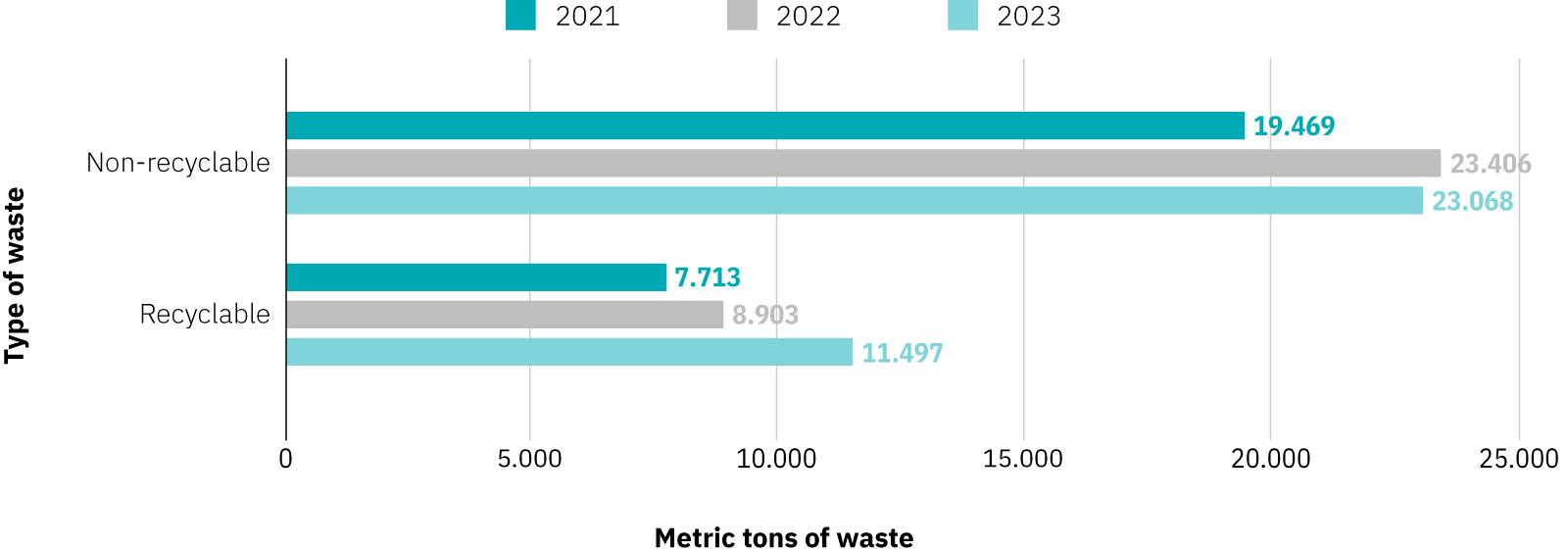Poor waste management causes serious environmental and health problems by polluting rivers, oceans and soil, and encouraging the propagation of harmful fauna and the spread of disease. El Puerto de Liverpool is taking action to comprehensively manage its waste, including reducing the amount of it generates, disposing of it correctly, and seeking out alternative ways to use it to avoid disposal.
Our main goal is to mitigate the impact of our operations on waste generation, recycling approximately 26,000 metric tons—basically all of our recyclable solid waste--by incorporating circular economy models using the available technology.
We have begun work on various initiatives that promote the efficient use of resources, while at the same time generating awareness among customers and employees:
| Type | 2024 | 2023 | 2022 | 2021 |
|---|---|---|---|---|
| Non-recyclable | 29,226.18 | 23,068 | 23,406 | 19,469 |
| Recyclable | 21,544.72 | 11,497 | 8,903 | 7,713 |

El Puerto de Liverpool also diverts other types of waste from disposal which can be monetized and used in other processes at the end of its useful life. The table below shows some of the waste that was diverted from landfill in recent years.
| Waste | 2024 | 2023 | 2022 |
|---|---|---|---|
| Electronics | 7.89 | 7.08 | 6.83 |
| Used vegetable oil from kitchens and cafeterias | 30.53 | 4,018.82 | 2,193.35 |
| Empty toner cartridges | 1.83 | 0.57 | 0 |
| Organic waste (biodigester) | 97.40 | 50.30 | 38.09 |
| Type | 2024 | 2023 | 2022 | 2021 |
|---|---|---|---|---|
| Biodigester | 3.7 | 1.94 | 1.47 | 1.72 |